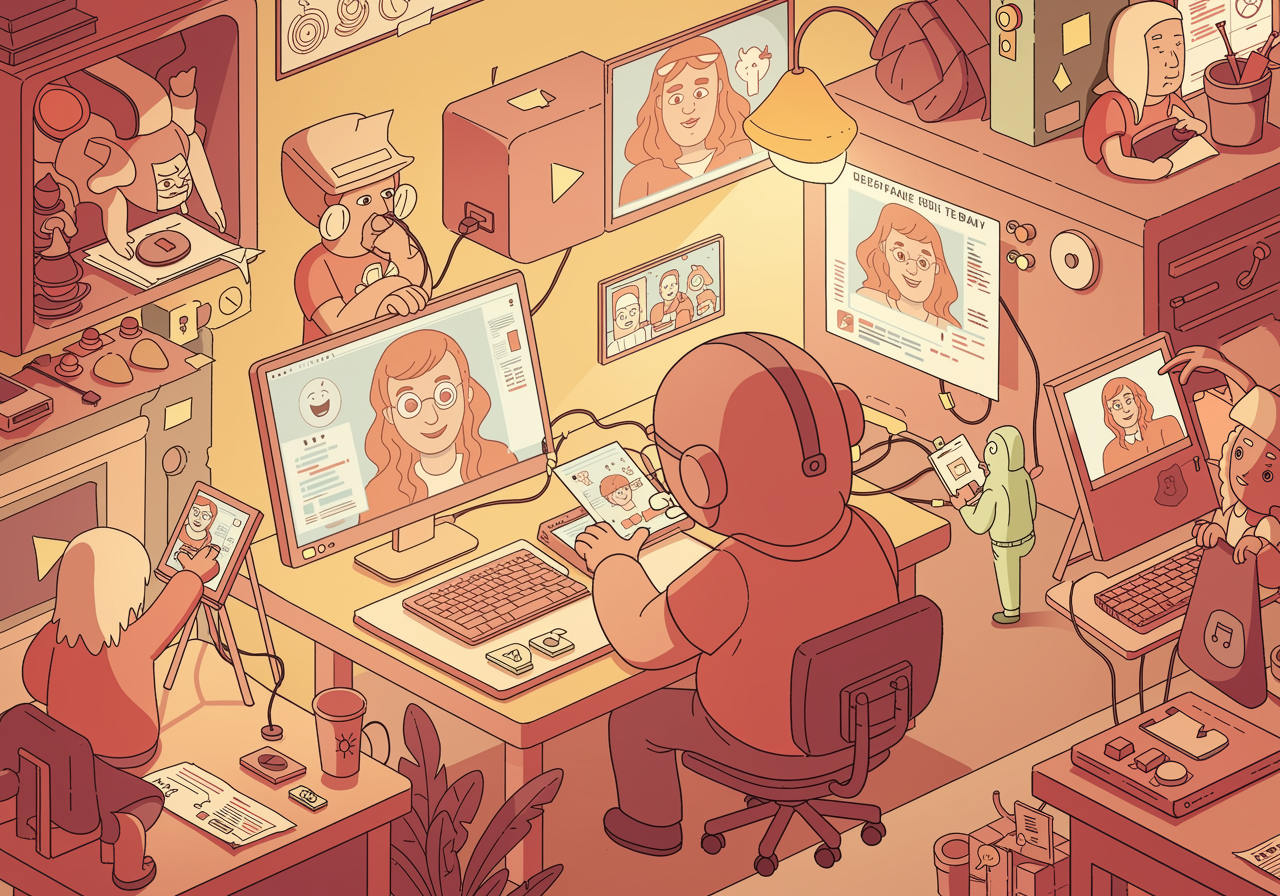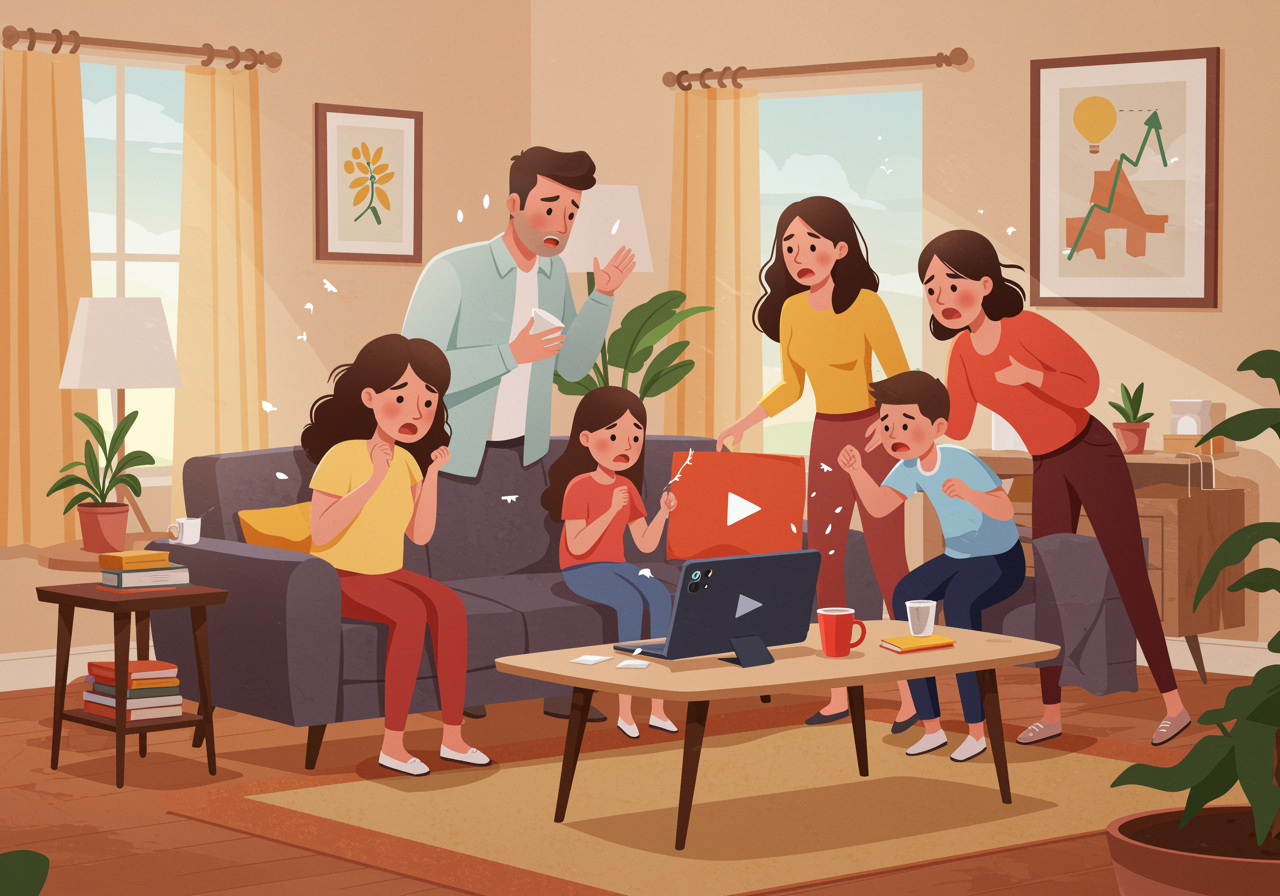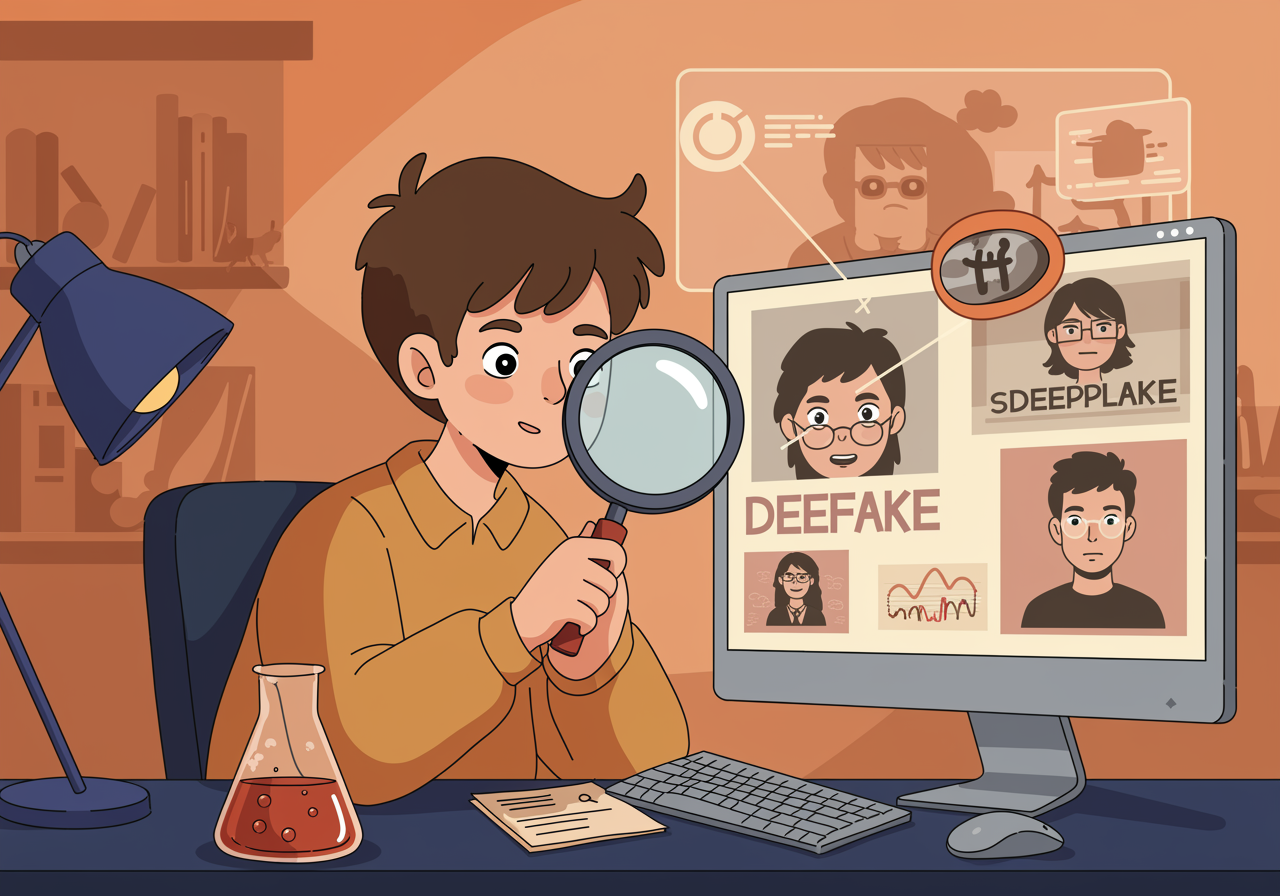When Pictures Lie: How AI Creates Super-Realistic Fake Images
Exploring how to spot deepfakes and why truth matters more than ever
Discover how artificial intelligence can create incredibly realistic fake images and videos, and learn the detective skills to tell what’s real from what’s not.
Overview
Imagine scrolling through social media and seeing a video of your favorite celebrity saying something shocking – except they never actually said it! Thanks to artificial intelligence, computers can now create incredibly realistic fake images and videos called 'deepfakes.' This technology is advancing so quickly that soon it might be nearly impossible to tell what's real and what's computer-generated. As this tech becomes more common, it's crucial for families to talk about how it could change everything from news and social media to how we trust what we see online.

Understand in 30 Seconds
Get up to speed quickly
- What Are Deepfakes?: AI-powered technology that can create incredibly realistic fake images, videos, or audio that look and sound completely real but are actually computer-generated.
- Why Should We Care?: If we can't tell what's real anymore, it becomes harder to trust news, social media, and even evidence in important situations like court cases.
- The Good Side: This tech can create amazing movie effects, help preserve historical figures' voices, and even assist people who have lost their ability to speak.
- The Tricky Side: Bad actors could use it to spread false information, create fake evidence, or manipulate people by making it seem like someone said or did something they never did.
Real Life Scenario
Situations you can relate to
Think about this: You wake up to find a video going viral where the President appears to declare war on another country. News stations are scrambling, people are panicking, and your phone is buzzing with worried messages from friends. But here's the twist – it's completely fake, created by AI in just a few hours. How would you know it's not real? What if your school's security cameras showed you doing something you never did? Or imagine seeing a 'candid' photo of a classmate that could ruin their reputation, but it's actually AI-generated. As this technology gets better and easier to use, we'll need to become digital detectives, always asking: 'Is this real?' and 'How can I verify this?'

Role Play
Spark a conversation with “what if” scenarios
What if you saw a video of your favorite YouTuber promoting a product they would never actually endorse?
- Role play: Take turns being a detective and a friend sharing the video. Practice asking questions like 'Does this seem like something they would say?' and 'Where did this video come from?'
What if a deepfake video of a political candidate saying something controversial went viral right before an election?
- Role play: Role-play as news reporters trying to verify if the video is real. Research together what questions journalists ask and what tools they use to check facts.
What if someone created a fake image of you at a party you never attended and posted it online?
- Role play: Discuss how this might feel and brainstorm steps to take, like talking to parents, reporting it, and proving where you actually were that night.
FAQs
Frequently asked questions people want to know
How can I tell if an image or video is fake?
Look for weird details like unnatural blinking, mismatched lighting, or strange shadows. Check if the source is reliable and search for the same image or video elsewhere online.
Are deepfakes always bad?
Not at all! They're used in movies for amazing special effects, can help preserve historical speeches, and even assist people who can't speak to communicate using their own voice.
Will AI get so good that we'll never be able to tell what's real?
While the technology is advancing quickly, researchers are also developing tools to detect fakes. It's becoming an ongoing race between creators and detectors.
Examples in the Wild
See how this works day to day
- A deepfake video of Ukrainian President Zelensky appeared to show him surrendering to Russia during the 2022 conflict, but it was quickly identified as fake by experts (Reuters Fact Check Team)
- The movie 'Fast & Furious 7' used deepfake technology to complete scenes with Paul Walker after his tragic death, showing the positive side of this tech (Digital Domain VFX Studio)
- Researchers at Microsoft developed a tool called 'Video Authenticator' that can detect deepfakes with 95% accuracy (Microsoft AI Research)
- A deepfake audio scam targeted a UK energy company, with criminals using AI-generated voice to mimic the CEO and steal $243,000 (Wall Street Journal Cybersecurity Report)
In Summary
What you should know before you start
- AI can now create incredibly realistic fake images and videos that are hard to tell from real ones
- This technology has both amazing positive uses (like movies) and concerning negative potential (like spreading false info)
- Learning to spot fakes and verify sources will become an essential life skill
- The future will require us to be more thoughtful about what we see and share online
Pro-tip for Parents
You got this!
If your teen seems worried about deepfakes making everything untrustworthy, remind them that humans have always had to think critically about information – from ancient rumors to photo manipulation before computers. Frame this as developing 'digital wisdom' rather than living in fear. Encourage them to fact-check together as a family when you see questionable content, making it a detective game rather than a scary responsibility.

Keep an Eye Out For
Find these examples in everyday life
- News stories about AI-generated content being used in elections or major events
- Social media platforms announcing new tools to detect and label synthetic media
- Movies or shows that use deepfake technology – discuss how you can tell the difference between entertainment and real news
Explore Beyond
Look up these related research topics
- How social media algorithms decide what content you see
- The ethics of artificial intelligence in daily life
- Digital literacy and how to fact-check information online